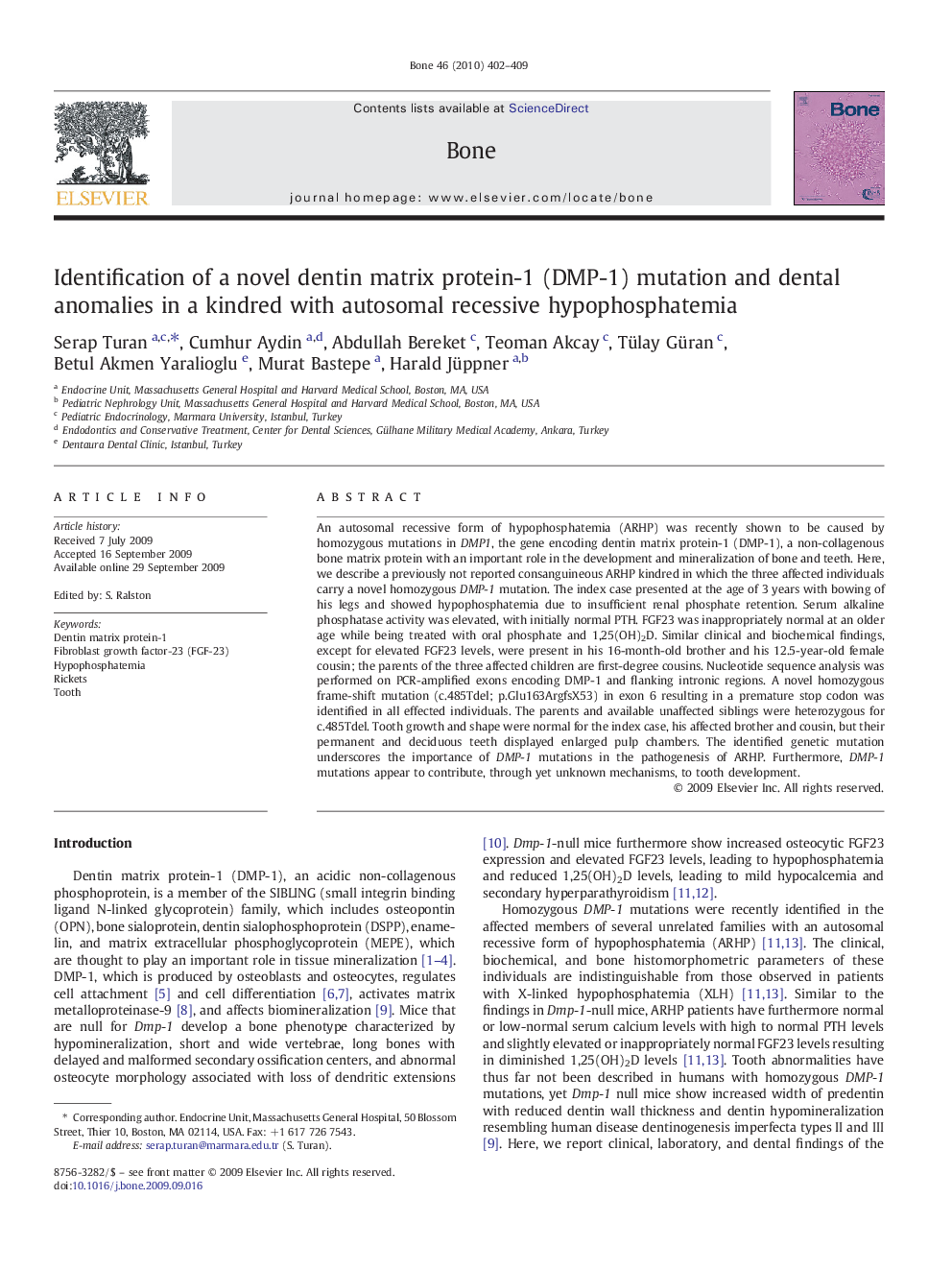| Article ID | Journal | Published Year | Pages | File Type |
|---|---|---|---|---|
| 5892467 | Bone | 2010 | 8 Pages |
An autosomal recessive form of hypophosphatemia (ARHP) was recently shown to be caused by homozygous mutations in DMP1, the gene encoding dentin matrix protein-1 (DMP-1), a non-collagenous bone matrix protein with an important role in the development and mineralization of bone and teeth. Here, we describe a previously not reported consanguineous ARHP kindred in which the three affected individuals carry a novel homozygous DMP-1 mutation. The index case presented at the age of 3 years with bowing of his legs and showed hypophosphatemia due to insufficient renal phosphate retention. Serum alkaline phosphatase activity was elevated, with initially normal PTH. FGF23 was inappropriately normal at an older age while being treated with oral phosphate and 1,25(OH)2D. Similar clinical and biochemical findings, except for elevated FGF23 levels, were present in his 16-month-old brother and his 12.5-year-old female cousin; the parents of the three affected children are first-degree cousins. Nucleotide sequence analysis was performed on PCR-amplified exons encoding DMP-1 and flanking intronic regions. A novel homozygous frame-shift mutation (c.485Tdel; p.Glu163ArgfsX53) in exon 6 resulting in a premature stop codon was identified in all effected individuals. The parents and available unaffected siblings were heterozygous for c.485Tdel. Tooth growth and shape were normal for the index case, his affected brother and cousin, but their permanent and deciduous teeth displayed enlarged pulp chambers. The identified genetic mutation underscores the importance of DMP-1 mutations in the pathogenesis of ARHP. Furthermore, DMP-1 mutations appear to contribute, through yet unknown mechanisms, to tooth development.
